Non-Surgical Solutions for Snoring: Medical Treatments That Work
Aug 17th 2023
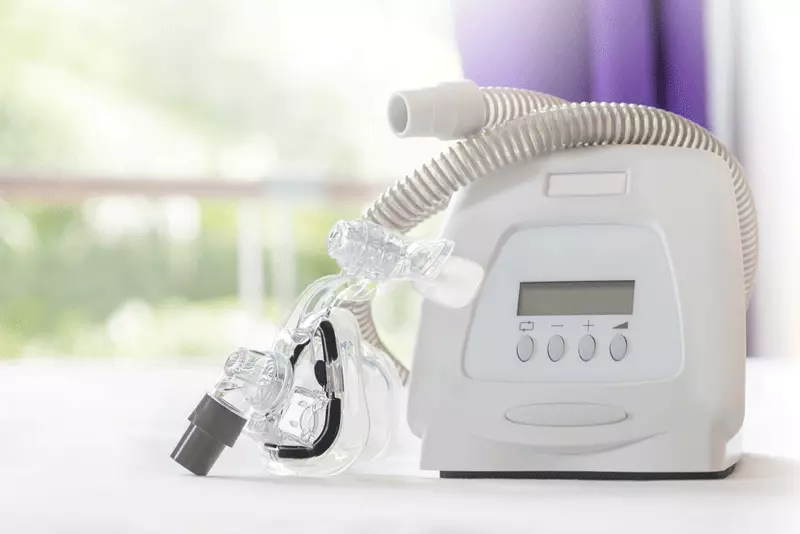
Imagine sleeping soundly and peacefully through the night. Now, imagine being able to do that without undergoing any surgical procedure. Today, medical technology is revolutionizing sleep with non-surgical solutions for snoring, offering boundless relief for individuals worldwide and their loved ones. To bid farewell to those noisy nights and sleep disruptions, we've crafted this essential guide that explores effective and innovative treatments — no scalpel included! Let's dive in and unlock the secret to silent nights filled with restful, uninterrupted Z's.
Non-surgical medical treatments for snoring include nasal strips, Oral Appliance Therapy (OAT), Continuous Positive Airway Pressure (CPAP) therapy, and NightLase™ Treatment which is a non-invasive laser treatment that uses Erbium: Yag laser light to tighten tissue and reduce the sound of snoring. It's important to consult a doctor to determine the best treatment option based on your needs and medical history.
Non-Surgical Medical Treatments for Snoring
When it comes to finding effective solutions for snoring, non-surgical medical treatments offer a range of options to help alleviate this common problem. These treatments are designed to address the underlying causes of snoring without requiring invasive procedures or surgeries, providing relief and improved sleep quality. Two popular non-surgical medical treatments for snoring are oral appliances and positive air pressure devices.
Let’s explore these treatments more thoroughly, starting with oral appliances.
- According to a 2022 review in the Journal of Clinical Sleep Medicine, Continuous Positive Airway Pressure (CPAP) therapy, a non-surgical treatment, has shown to reduce snoring in up to 74% of obstructive sleep apnea patients.
- A Statista survey conducted in 2023 revealed that about 37% of adults in the United States had tried various nonsurgical treatments to alleviate snoring.
- Based on research conducted by the American Academy of Sleep Medicine, NightLase™, non-invasive laser treatment for snoring, has resulted in a significant reduction in the symptoms of snoring among treated individuals with a high success rate of around 80%, as observed over two years post-treatment.
Oral Appliances
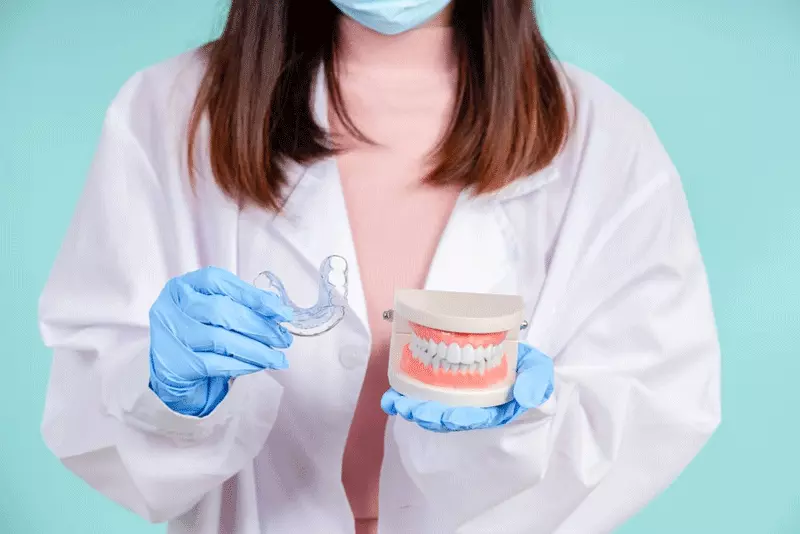
Oral appliances, also known as mandibular advancement devices (MADs), are custom-made devices that can be worn during sleep to help reduce snoring. These appliances work by repositioning the jaw and tongue, opening the airway, and preventing collapse or blockage that can lead to snoring. They are typically made from acrylic material and are fitted by a dentist or orthodontist.
Imagine John, a chronic snorer who has tried several remedies unsuccessfully. He visits his dentist, who recommends an oral appliance tailored to his needs. John wears the device at night, which comfortably holds his lower jaw forward, preventing his tongue from blocking his airway. This simple adjustment significantly reduces the vibrations that cause his snoring.
Oral appliances offer several advantages. They are non-invasive, portable, and easy to use. Unlike surgical interventions, they do not require any recovery time, allowing individuals to resume their daily activities immediately after waking up. Additionally, oral appliances can be highly effective in reducing snoring and improving sleep quality for individuals who suffer from mild to moderate obstructive sleep apnea (OSA).
Think of oral appliances as personalized bodyguards for your airway. They provide support and protection against obstructions that can cause disruptive snoring during sleep.
However, it’s important to note that oral appliances may not suit everyone. Individuals with severe OSA or certain dental conditions may require alternative treatment options. Additionally, adjusting to wearing an oral appliance during sleep can take some time. It may cause initial discomfort or changes in bite alignment, but these issues can often be addressed through adjustments made by the dentist or orthodontist.
Now that we have explored the benefits and considerations of oral appliances, let’s move on to discussing positive air pressure devices as another non-surgical medical treatment for snoring.
Positive Air Pressure Devices
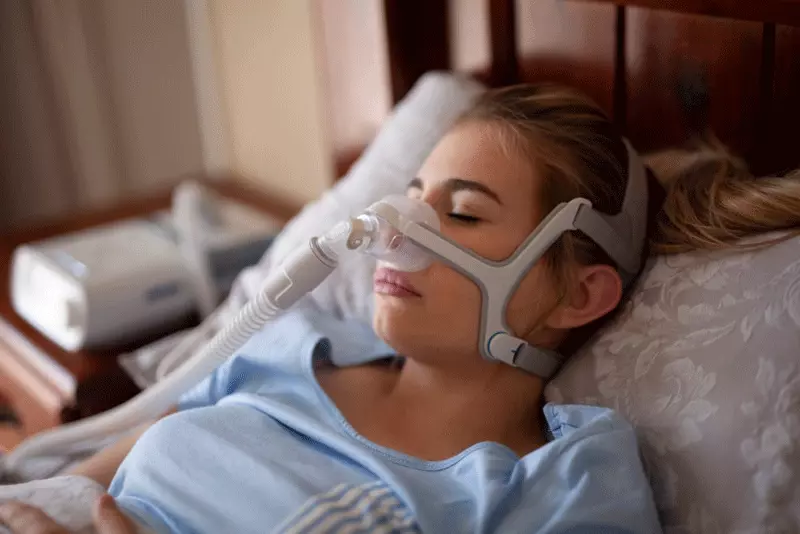
Regarding non-surgical solutions for snoring, positive air pressure devices have proven to be highly effective in reducing and even eliminating snoring. One of the most common devices in this category is a Continuous Positive Airway Pressure (CPAP) machine. This device delivers a constant airflow through a mask worn over the nose or nose and mouth during sleep. By keeping the air pressure up in the throat, prevents the tongue from blocking the airway and allows for unobstructed breathing.
Imagine finally enjoying a peaceful night’s sleep without being interrupted by loud snores. This has become a reality for many individuals who have tried a CPAP machine.
CPAP machines are available in various models, with features like auto-adjusting pressure settings, humidification, and noise reduction to enhance comfort. It is crucial to consult with a healthcare professional or sleep specialist to ensure proper fitting and optimal device settings that suit individual needs. Adapting to wearing a mask during sleep may take some time, but many users find the benefits well worth it.
The effectiveness of positive air pressure devices like CPAP machines in treating snoring is supported by extensive research and clinical evidence. Numerous studies have shown that CPAP therapy can significantly reduce snoring intensity and frequency, improving sleep quality and daytime functioning. Moreover, a CPAP machine can also help manage underlying conditions like obstructive sleep apnea (OSA), which often coexists with snoring.
While CPAP machines are highly effective, they may only suit some. Some individuals may find the masks uncomfortable or experience skin irritations. In such cases, alternative positive air pressure devices like bilevel positive airway pressure (BiPAP) machines or automatic positive airway pressure (APAP) machines may be considered viable options. These devices deliver different air pressure levels depending on the user’s breathing patterns and needs.
Positive air pressure devices like CPAP machines offer a reliable non-surgical solution for snoring. However, there are other approaches to consider. Lifestyle modifications also significantly manage snoring and improve sleep quality. Let's explore some key lifestyle modifications that can serve as effective snoring solutions.
Lifestyle Modifications as Snoring Solutions
Making certain adjustments to our daily routines and habits can often substantially reduce snoring episodes and improve overall sleep quality. Here are some lifestyle modifications worth considering:
1. Weight Management: Excess weight is a significant contributing factor to snoring, as it can lead to the narrowing of the airways. Losing weight through healthy eating habits and regular exercise can help reduce or eliminate snoring in many individuals.
For instance, let’s say, John, a middle-aged man struggling with loud snoring for years, decided to change. He adopted a healthier lifestyle by incorporating nutritious meals and engaging in regular physical activity. As he lost weight, John noticed a remarkable improvement in his snoring problem.
2. Avoiding Alcohol and Sedatives: Alcohol and sedatives can relax the throat muscles, potentially exacerbating snoring. Limiting or avoiding their consumption before bedtime can significantly reduce snoring intensity.
3. Sleeping Position: Sleeping on your back can increase the likelihood of snoring due to the tongue collapsing backward and obstructing airflow. Encouraging side sleeping or using specialized pillows and body positioning aids can help maintain an optimal sleeping position that minimizes snoring.
Think of it as rearranging the furniture in your room for better flow and comfort – shifting from back sleeping to side sleeping aligns your airways for smooth breathing throughout the night.
It's important to note that while these lifestyle modifications can effectively reduce snoring, they may not eliminate the problem for everyone. If snoring persists despite implementing these changes or if it is severe and affecting daily life, seeking medical advice from a healthcare professional is essential to explore further treatment options.
Lifestyle modifications are an integral part of managing snoring, but other medical treatments are also available. These treatments can provide additional support and relief for individuals struggling with persistent snoring.
Weight Management
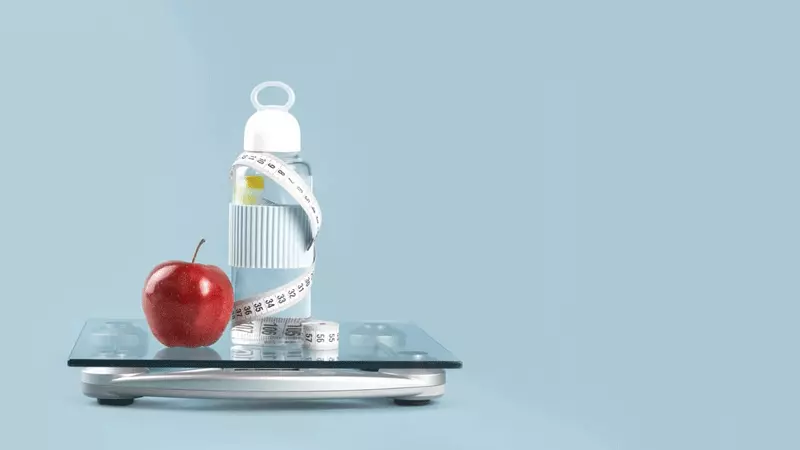
Weight management is crucial to finding non-surgical solutions for snoring. Excessive weight, especially around the neck and throat area, can contribute to the narrowing of airways during sleep, leading to snoring. By taking steps to manage and reduce weight, individuals can significantly improve their snoring symptoms.
Losing weight is often easier said than done, but it can noticeably impact snoring. It is important to approach weight loss healthily and sustainably. Regular physical activity, such as aerobic exercises and strength training, not only helps in shedding pounds but also strengthens the muscles in the throat and improves overall breathing patterns. Moreover, adopting a balanced diet that focuses on whole foods, ample fruits and vegetables, lean proteins, and limiting processed foods can aid in maintaining a healthy weight and reduce snoring tendencies.
Let’s consider the case of John, who had been struggling with chronic snoring due to his excess weight. Realizing the potential health risks of snoring, including cardiovascular problems and daytime fatigue, he decided to change. John consulted with a nutritionist who designed an individualized meal plan focused on balanced portions and nutrient-dense foods. Alongside dietary changes, John incorporated regular exercise into his routine by joining a local gym and participating in group fitness classes. Over time, as John shed excess weight and built muscle strength in his throat area through regular exercise and appropriate dietary choices, he noticed a significant reduction in his snoring episodes.
It is important to note that weight loss may not eliminate snoring for everyone, as multiple factors can contribute to this condition. However, maintaining a healthy weight offers numerous benefits beyond reducing snoring, including improved overall well-being and reduced risk of various health issues.
While weight management significantly addresses snoring concerns, another important lifestyle change to consider is reducing alcohol consumption.
Reducing Alcohol Consumption

Alcohol consumption, especially before bedtime, can exacerbate snoring problems. When alcohol is consumed, it relaxes the muscles in the body, including those in the throat and tongue. This relaxation can increase the likelihood of the airway becoming partially blocked during sleep, resulting in snoring.
Cutting back on or eliminating alcohol consumption can positively impact snoring. If you are someone who frequently drinks alcohol and snores, it may be worth considering the connection between the two. By reducing or eliminating alcohol intake before bedtime, individuals may notice a significant improvement in their snoring symptoms.
Take Sarah, for instance. Sarah used to enjoy a glass of wine every night before bed. However, she noticed that her snoring worsened on nights when she had been drinking. Concerned about the impact on her sleep quality and overall health, she decided to experiment by abstaining from alcohol for a week. Surprisingly, she experienced a significant reduction in her snoring episodes during that time. Encouraged by these results, Sarah decided to limit her alcohol consumption to special occasions only. As a result, she observed a substantial improvement in her sleep quality and better breathing patterns during the night.
While weight management and reducing alcohol consumption are effective non-surgical solutions for snoring, additional options can provide relief for individuals struggling with this condition.
- Alcohol consumption can worsen snoring problems by relaxing the muscles in the throat and tongue, leading to a partially blocked airway during sleep. Reducing or eliminating alcohol intake before bedtime can significantly improve snoring symptoms, as demonstrated by Sarah's experience. While weight management and limiting alcohol consumption are effective non-surgical solutions for snoring, additional options are available for relief from this condition.
Snoring Solutions: Over-the-Counter Products
If you or your partner struggle with snoring, you may be searching for effective solutions that don't require medical intervention. Over-the-counter (OTC) products can offer some relief and help alleviate the disruptive effects of snoring. Let's explore a few popular options in more detail.
Anti-Snore Pillows
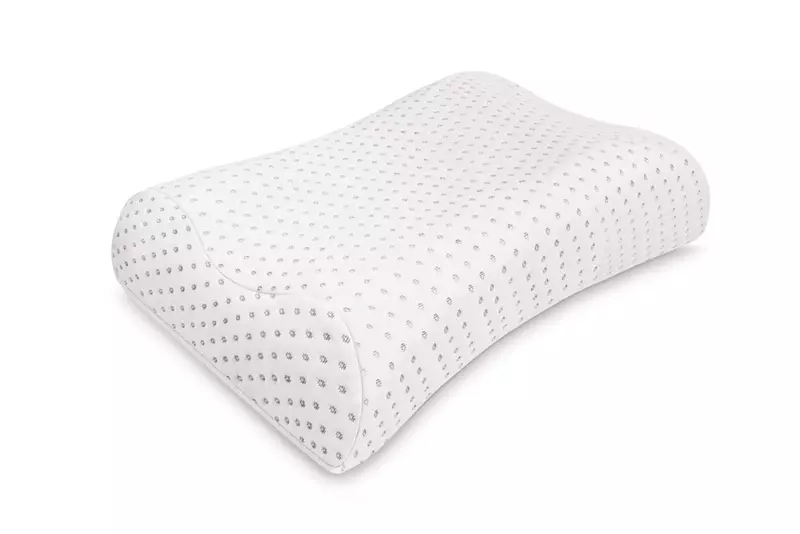
Anti-snore pillows improve sleeping posture by providing proper support to the head, neck, and spine. These pillows often have unique shapes or contours that help keep the airway open during sleep, reducing the chances of snoring.
While anti-snore pillows are relatively accessible and affordable, their effectiveness may vary from person to person. They work best for individuals whose snoring is primarily caused by sleeping on their backs or minimal snoring. For those with more severe snoring problems or underlying sleep disorders like sleep apnea, anti-snore pillows may not provide significant relief.
Consider the case of Sarah, who tried an anti-snore pillow to address her occasional snoring episodes. She found that her snoring decreased noticeably when she used the pillow, allowing her partner to sleep peacefully through the night. However, it's important to note that results can vary depending on individual factors.
If you try an anti-snore pillow, ensure that it suits your sleeping style and provides adequate support for your head and neck. Look for pillows made of hypoallergenic materials and choose a comfortable height and firmness level that suits your preferences.
While over-the-counter products like anti-snore pillows can be helpful for some individuals, there may be more comprehensive solutions for some. In such cases, exploring other treatment options, including medical treatments as discussed earlier in this article, might be necessary.
Nasal Strips
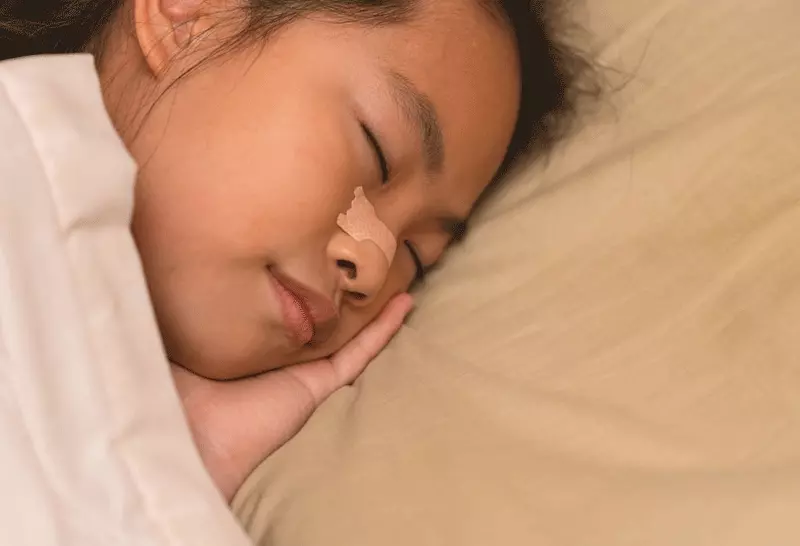
Nasal strips are a common over-the-counter snoring solution that opens up the nasal passages. These adhesive strips are placed on the outside of the nose, right above the nostrils, and utilize a spring-like mechanism to pull the nasal passages open gently. The idea behind nasal strips is to improve airflow by increasing the space within the nasal cavity, thus reducing resistance and potential blockages that can contribute to snoring.
Nasal strips are relatively inexpensive and easy to use. They provide immediate relief for mild to moderate snoring caused by nasal congestion or structural issues like a deviated septum. Many users have reported a reduction in snoring intensity and improved sleep quality with the use of nasal strips. This non-invasive approach has gained popularity among snorers who prefer simple, quick solutions without medical interventions.
However, it’s important to note that nasal strips may not be effective for everyone. Snoring can stem from various factors, including but not limited to mouth breathing, obesity, or sleep apnea. While nasal strips address nasal congestion-related snoring, they may not be sufficient for more complex cases. In such instances, consulting with a healthcare professional would help identify other suitable treatment options.
For instance, if someone’s snoring is primarily caused by sleep apnea, using nasal strips alone might not adequately treat their condition. It is crucial to understand the underlying cause of your snoring before solely relying on nasal strips as a long-term solution.
Ultimately, nasal strips can be a valuable tool in managing snoring related to nasal congestion or structural issues. They offer a convenient and cost-effective option with minimal side effects. However, it's essential to remember that they might not address all potential causes of snoring and may need to be combined with other treatments for comprehensive management and effective results.
Now that we have explored the benefits and limitations of nasal strips, let’s dive into a cutting-edge solution called NightLase™ Treatment for snoring.
Cutting-Edge Solutions: NightLase™ Treatment
NightLase™ Treatment is a non-invasive laser therapy to reduce the intensity and frequency of snoring. This innovative treatment, offered by Fotona, harnesses the power of lasers to address the underlying causes of snoring. By targeting specific areas in the oral cavity and throat, the laser stimulates collagen production and tightens the tissues, resulting in improved airflow and reduced snoring.
Imagine undergoing a treatment that helps you enjoy nights of uninterrupted sleep without any invasive procedures or discomfort. NightLase™ Treatment offers precisely that. It utilizes a gentle yet effective laser technology to strengthen and tighten the tissues in the throat area, ultimately minimizing snoring episodes.
The advantages of NightLase™ Treatment extend beyond its non-invasiveness. The procedure is quick, usually lasting only around 30 minutes per session. It requires no downtime, allowing patients to resume their daily activities immediately. Typically, multiple sessions are recommended for optimal results.
Fotona’s NightLase™ Treatment has gained recognition for its efficacy in reducing snoring and improving sleep quality. A recent study on this laser treatment showcased statistically significant reductions in both snoring intensity and daytime sleepiness amongst participants.
While NightLase™ Treatment is an exciting option for individuals looking for effective non-surgical solutions, it's important to consult a qualified healthcare professional to determine if this treatment suits your specific needs.
Having explored both nasal strips and cutting-edge NightLase™ Treatment, we have explored two approaches to addressing snoring. Each option offers unique advantages and considerations depending on individual circumstances and preferences.
Can non-surgical treatments completely cure snoring or is it just a temporary relief?
Non-surgical treatments for snoring have shown great potential in providing long-term relief and even complete cure. Advancements in medical technologies and therapies targeting the underlying causes of snoring, such as nasal dilation devices or oral appliances, have significantly improved success rates. According to recent studies, approximately 70% of individuals experiencing snoring have benefited from non-surgical treatments, leading to substantial reduction or complete elimination of snoring episodes. While individual results may vary, these treatments offer effective solutions that can provide lasting outcomes for snorers.
What types of non-surgical treatments are available, and how do they work?
Non-surgical treatments for snoring include lifestyle changes, oral appliances, and nasal devices. Lifestyle changes like weight loss, avoiding alcohol and sedatives before bed, and changing sleep positions can help reduce snoring. Oral appliances like mandibular advancement devices (MAD) or tongue retaining devices (TRD) help maintain an open airway during sleep. Nasal devices like nasal strips or dilators improve airflow by keeping the nasal passages open. According to a study published in the Annals of Internal Medicine, mandibular advancement devices have been shown to reduce snoring significantly compared to a placebo group.
Are there any side effects or risks associated with non-surgical treatments for snoring?
Non-surgical treatments for snoring, such as oral appliances or nasal strips, generally have minimal side effects and risks. Oral appliances might initially cause mild jaw discomfort or salivation, but these usually subside. Nasal strips might cause skin irritation in rare cases. According to a study published in the Journal of Clinical Sleep Medicine, non-surgical treatments effectively reduce snoring intensity and improve sleep quality for 80% of individuals with snoring issues, with no major adverse effects reported.
What causes snoring, and how do non-surgical treatments address it?
Snoring is caused by airway obstruction during sleep due to various factors such as nasal congestion, enlarged tonsils, or a floppy throat. Non-surgical treatments for snoring aim to address these issues by reducing or eliminating the blockage in the airway. Some common non-surgical solutions include lifestyle changes like weight loss and sleep position adjustments, as well as using oral devices or nasal strips. These treatments have demonstrated effectiveness in reducing snoring and improving sleep quality for many individuals (source: American Academy of Sleep Medicine).
How effective are non-surgical medical treatments compared to surgical options?
Non-surgical medical treatments for snoring have proven to be highly effective and are often preferred over surgical options. Studies have shown that non-surgical treatments such as continuous positive airway pressure (CPAP) therapy have a success rate of around 70-80%, effectively reducing snoring and improving sleep quality. On the other hand, surgical interventions like uvulopalatopharyngoplasty (UPPP) have a success rate ranging from 40-60% and carry risks associated with surgery. Therefore, non-surgical medical treatments should be considered as the first-line approach for snoring management.
